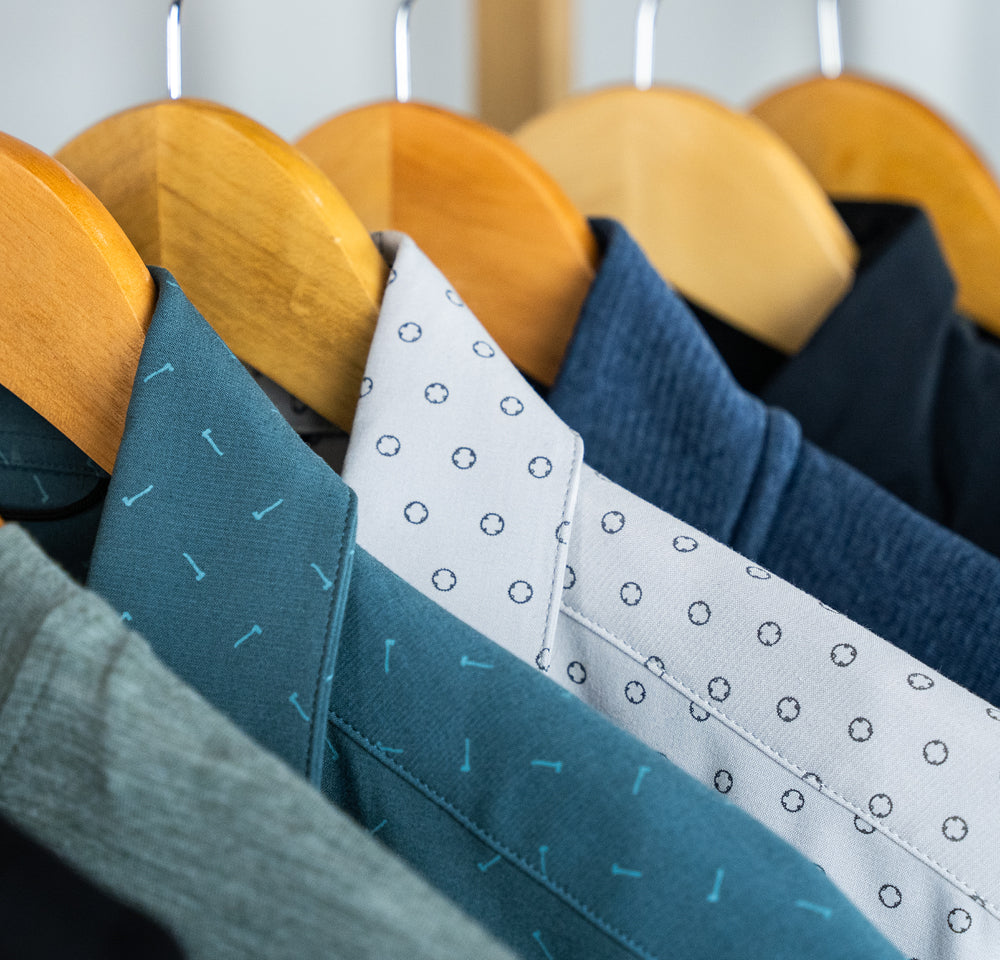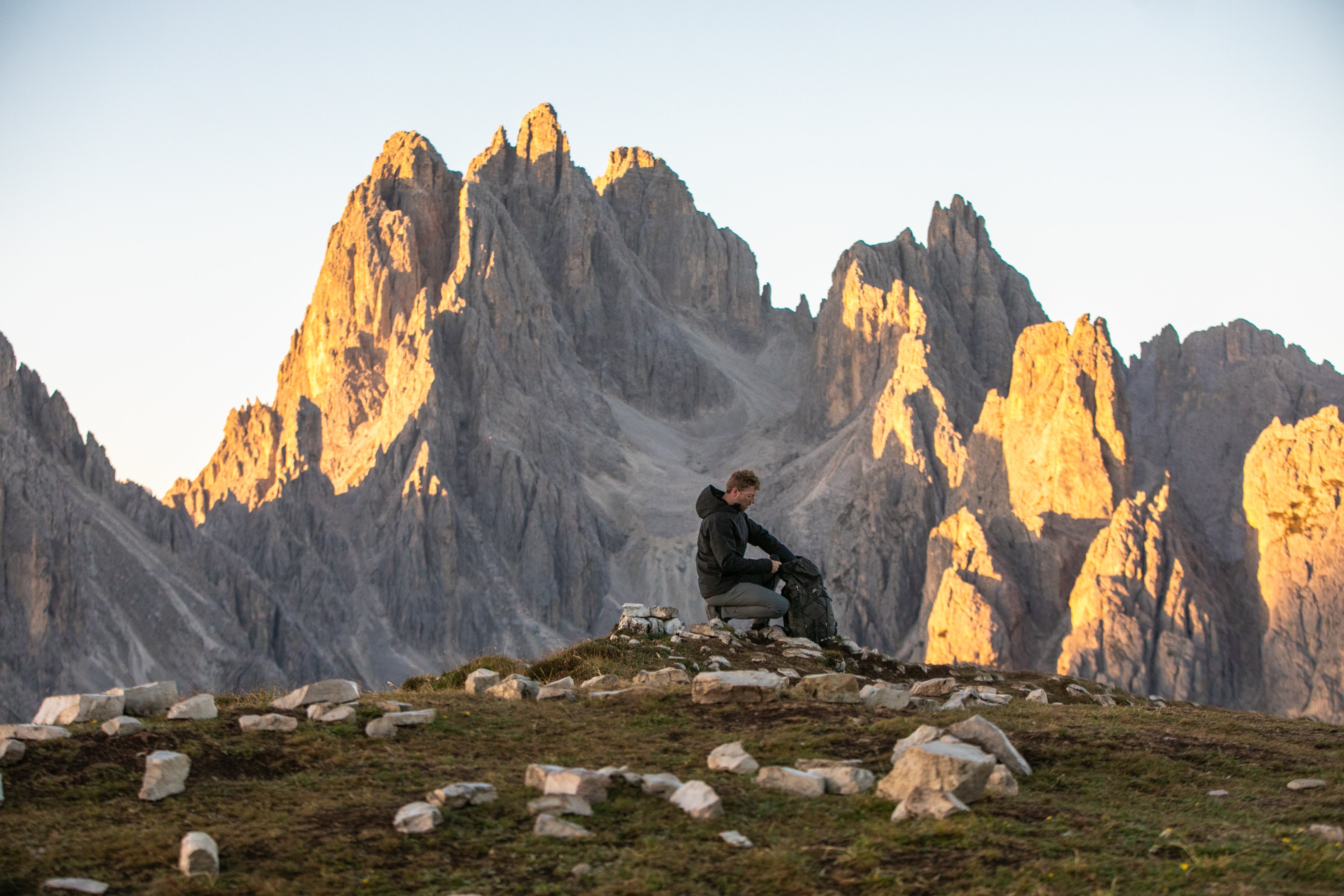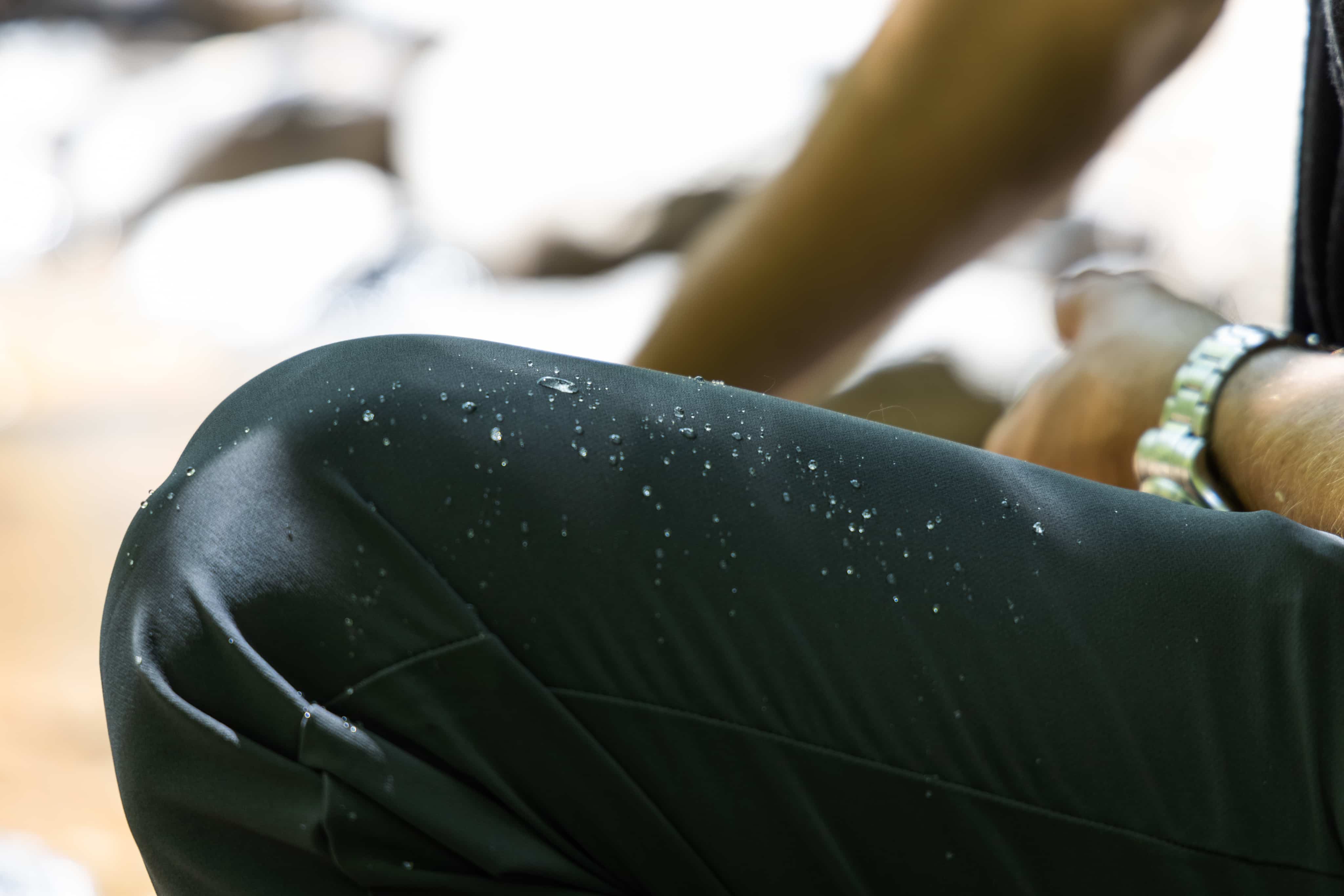Bamboo & Merino wool are both excellent options for a base layer of clothing.
But if you’re trying to decide between which fabric to buy (and can’t get both), you might be wondering which one is better.
Here at TEREN, we’re experts when it comes to clothing design—we’ve spent years researching and perfecting both our merino wool & bamboo clothing. Today, we are going to help you understand the key differences between Merino wool and bamboo clothing so you can decide which is best for your needs.
Bamboo vs Merino Wool
To decide which fabric is right for you, let’s first break down what makes these fabrics shine.
Bamboo Fabric: What Makes it So Great?

Pros: Eco-Friendly, VERY soft, hypoallergenic.Cons: Not ideal for cold weather, tends to pill, limited color selection.Cost: $$
If you’re passionate about sustainable clothing, bamboo is truly impressive.
Bamboo is by far the fastest growing plant in the world and can grow up to 35 inches in a day! To make a simple shirt out of bamboo makes almost no impact at all on the health and wellness of the plant.
Even more, a bamboo plant requires a fraction of the water that other plants need. It’s so resilient that it was the first plant to regenerate after the nuclear detonations in Japan after world war II. In fact, some bamboo plants even survived the explosions.
But enough geeking out about this incredible plant—let’s dig into what makes bamboo such a great choice for clothing.
First, if you have sensitive skin, you should know that bamboo is hypoallergenic. This means that it’s safe for all skin types (though it can cause food allergies, but luckily we don’t typically eat clothing).
Bamboo also has natural antibacterial properties which make it fight off offensive smells. This, paired with its superior breathability, makes it a truly ideal choice for outdoor clothing. Bamboo products are always incredibly soft compared to yarn, cotton, synthetic fibers, etc. It's extremely comfortable and soft.
So what’s the downside?
First, a lot of bamboo processing (not ours!) involves harsh chemicals like caustic soda and carbon disulfide. While it can be naturally processed, this is even more labor intensive than chemical processing. This is often why bamboo clothing products have a higher price than other less sustainable fabrics like cotton. The chemical process is also quite damaging to the environment, which isn’t ideal for eco-conscious consumers.
Along with the difficulty in processing bamboo, it's also resistant to a lot of dyes, which results in a sometimes limited color availability.
Check out our bamboo-derived Daily Driver Tee to see it in action.
Merino Wool: Why Does it Stand Out?
-
Pros: Temperature regulating, very soft, odor resistant.
-
Cons: Requires special laundering, expensive, moths love it.
- Cost: $$$
Throw everything you know about wool out the window and let’s talk sheep. First, you may be wondering what the difference between regular wool and Merino wool is. Merino is the type of sheep that this specific wool comes from.
These sheep have been around for centuries and Spainiards have been using Merino wool for clothing since as early as the 12th century. In fact, these sheep were so prized that exporting or stealing a Merino sheep was punishable by death.
What makes this type of wool so spectacular and coveted is that it's incredibly fine—about one-third the diameter of a human hair. When weaved together the fibers become quite strong and durable, while still remaining soft and pliable. This is why Merino wool fabric doesn’t make you feel itchy like traditional wool.
Merino sheep have evolved to live in climates anywhere from 5 degrees to 90 degrees fahrenheit, and this is because of the natural temperature regulating properties of their wool.
Have you ever gotten a cotton shirt wet and felt really cold after? Merino wool has the ability to retain heat even when wet. This makes it great for keeping you warm on ski lifts or hikes and makes it an ideal fabric for socks and base layers.
It's also naturally moisture-wicking, antimicrobial, and antibacterial. This means you can wear it for multiple days on a long trip and not smell pungent like you otherwise might.
The downside of merino wool clothing is that it's a bit finicky to wash. While you can wash it in a traditional washer, you should always avoid harsh chemicals like heavy detergents and bleach. Also, it's recommended that you skip the dryer and instead air dry your Merino wool clothing.
It should be noted though that the fibers are pliable when wet, so if you hang it on a clothing line it will lose its shape. It's best to lay your pieces out flat. When storing Merino wool clothing, always take precaution to keep moths away, since it's technically a protein fiber like cashmere and silk.
Check out our Traveler Tee to see an example of Merino wool clothing.
How to Pick the Right Fabric For The Occasion
Hopefully by now you can see why we geek out so hard about both bamboo and Merino wool. They’re amazing fabrics for travel, outdoor activities, and even just everyday wear.
So how do you pick which one is right for you? The answer is that they both can (and probably should) be staple pieces in your wardrobe.
However, if you tend to experience more cold weather—Merino wool is superior to bamboo at keeping you warm. But both are excellent at temperature regulation on a hot day and incredibly breathable.
Our Favorite Merino Wool and Bamboo Clothing Options
At TEREN, we stand by bamboo and merino wool fabrics so fervently that we have designed a whole line of clothing options so you can enjoy the benefits of these incredible fabrics as part of your everyday wear.
Here are some of our favorite merino wool and bamboo options:
1. Bamboo: Daily Driver Shirt

Fabric: BambooKey Features: Integrated glasses cleaner, fire-starting collar stays, 4-way stretch fabric
If you’re in the market for a shirt that you can just mindlessly grab and wear for pretty much any occasion—do yourself a favor and pick up the Daily Driver Shirt. This shirt has all of the benefits of bamboo clothing like its softness, moisture wicking abilities, temperature regulation, wrinkle-resistance, and more.
When we say you can wear it to your best friend's wedding and during vigorous outdoor activities like climbing and backpacking, we mean it.
Not only that, but it’s odor-resistant, making it a much better choice than cotton and other synthetic materials. You can groove your heart out on the dance floor all night without worrying about body odor.
We also make a Daily Driver Long Sleeve shirt so you can enjoy all of the perks of this great shirt year round.
2. Bamboo: Daily Driver Tee

Fabric: BambooKey Features: Lightweight, odor-resistant, quick drying
The Daily Driver Tee was specially designed to be your favorite t-shirt you can confidently grab for everyday. Its made from 70 percent bamboo that is able to wick moisture, regulate body temperature, and keep you odor-free—even during vigorous outdoor activities.
Wear it by itself or layer it up to get all of the benefits bamboo fabric has to offer. Bamboo base layers are great for keeping you cool on a hot summer day and an ideal choice for outdoor enthusiasts.
3. Merino Wool: Traveler Tee

Fabric: Merino WoolKey Features: 100 percent Merino wool, extremely breathable, all-weather performance.
We wanted to create the perfect shirt that could be worn for every single occasion, which is exactly why we chose to use 100 percent Merino wool in our Traveler Tee. Other clothing that claims to be made of Merino wool often contains a blend of other material as well.
This shirt is able to be worn for multiple days in a row, since it's antimicrobial and odor-resistant. This makes it an ideal choice as an undershirt, adventure shirt, and a staple for long trips. It has all of the great key properties that make Merino wool such a coveted material.
Also check out our Long Sleeve Traveler Tee. This shirt is ideal for cold weather activities, since Merino wool base layers excel at keeping you warm; even when they get wet from sweat, snow, or ice.
4. Merino Beanie
Fabric: Merino WoolKey Features: 100 percent Merino wool, incredibly soft.
It's no secret that you lose 40-45 percent of your body heat through your head. This means that keeping your head covered in cold conditions is imperative for staying warm.
This is why we created the Merino Beanie.
Merino is regarded as the best natural material for keeping you warm, dry, and odor-free. Whether you’re hitting the slopes, commuting to work, or sitting around the campfire—this beanie will keep you comfortable all day long and help you do the things you love even longer.
Frequently Asked Questions
Here are some commonly asked questions about these fabrics:
Is Bamboo or Merino wool warmer?
Merino wool is a much warmer fabric choice than bamboo. It has much better insulating properties and makes an ideal base layer.
Are Merino Wool or Bamboo socks better?
Both fabrics are great options for socks because of their breathability, antimicrobial properties, and moisture-wicking abilities. However, Merino wool is the best choice for cold weather socks since it is so highly regarded for being the warmest cold weather fabric.
Which material is softer? Bamboo or Merino Wool?
Both materials are impressively soft, however bamboo takes the cake as the softest material on the market. Even softer than cashmere.
Is Bamboo or Merino Wool more sustainable?
Both Merino wool and bamboo can be incredibly eco-friendly. However, because of the harsh chemicals sometimes involved in the processing of bamboo, it isn’t always the most environmentally friendly. Merino wool is not only sustainable, but also biodegradable.
Final Thoughts
Both Bamboo and Merino Wool have impressive qualities that make them excel as clothing options in so many settings. Bamboo is a great eco-friendly, hypoallergenic, and naturally moisture-wicking material, while Merino wool offers exceptional temperature-regulating qualities that make it great for all seasons.
Ultimately, when it comes down to whether bamboo or Merino wool is better—that choice is yours to make.
At TEREN, we believe that both materials are truly top-of-the-line; which is why we choose to use them both. Whether it’s our ultra-lightweight bamboo Daily Driver Tee or the 100 percent Merino wool Traveler Tee and Merino Beanie, our clothes are built to look good, feel good, and last.
We hope you enjoyed geeking out about these amazing materials as much as we did!






